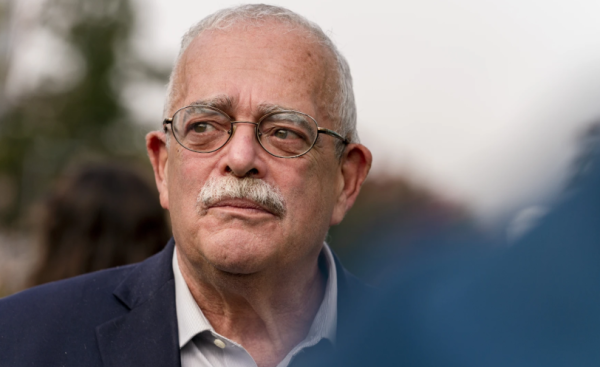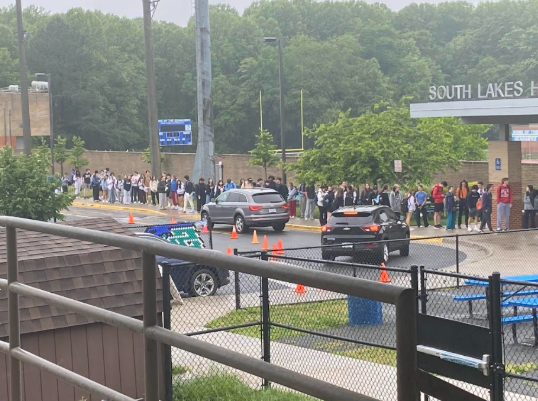FCPS’ hiring practices found to be highly discriminatory against Black educators
Fairfax County is one of the largest and most diverse school districts in not only the commonwealth of Virginia, but the United States. For a county that is lauded for its diverse communities and acceptance, the faculty leading these classrooms are overwhelmingly white. A 2017 study found a systemic problem in FCPS’ schools, and the issue persists today.
In 2017, George Mason University researchers did a study that was published in the spring issue of the Harvard Educational Review. They found that Black teachers had “slightly” lower pass levels on a FCPS screening test, but had more degrees, substantial credentials and classroom experience. Black educators comprised 13 % of applicants to FCPS schools but received 6% of job offers, while white educators accounted for 70% of the applicant pool and had over 77% of the job offers. The study found that this discrimination did not impact the hiring of Asian or Hispanic applicants. White principals were less likely to higher Black teachers than Black principals. Additionally, the Black teachers that the County did hire were more likely to be offered positions in “struggling” schools with higher populations of low income students of color. A panel on student achievement gaps sought a probe into the issue, but the results of any internal investigations remained quiet. The county repeatedly declined to disclose what portion of the 28% of minority teachers hired in 2017 were Black. The County pledged to make positive changes, but after four years, it took a movement of pressure to reignite the public conversation at the highest levels.
26 schools in FCPS have zero staff members of color. Candidate for lieutenant governor and Fairfax County’s NAACP President Sean Perryman expressed great concern with this situation, “It’s not only bad for students of color, but white students as well, because you’re socializing them in this way.” Perryman labeled the situation “unacceptable.” The Fairfax NAACP Education Chair Sujatha Hampton said that there needs to be continuous auditing, and explained that Black teachers would also feel more comfortable in FCPS if the environment was not so isolating.
After a massive social justice movement swept the United States and Virginia in the summer of 2020, Fairfax County faced a great deal of its own problems, particularly in education. Superintendent Brabrand, who was not superintendent during the 2017 study or the period before, acknowledged the 26 schools. He said, “That is a problem. It’s not acceptable.” He held a town hall with the NAACP and pledged to work further with the organization, but leaders from the chapter wanted a more clear timeline from him.
https://twitter.com/FCPSSupt/status/1265655138468925440?s=20
Brabrand pledged to hire a Chief Equity Officer, in addition to increasing the number of town halls and improving relationships with historically black colleges and universities, on a county-level. In November of 2020, FCPS hired Lisa Williams, a former director of the Department of Equity and Cultural Proficiency for the Baltimore County Public School System in Maryland. Williams now oversees disciplinary hearings, workplace practices, family involvement and the controversial Thomas Jefferson High School for Science and Technology admissions practices.
The County still reportedly hired 32 fewer Black teachers than in years past. Schools and faculty now have anti-bias classes being implemented, but the curriculum will not be fully approved on a state level until 2022. FCPS also took some flack for paying $20,000 for an anti-racism seminar from renowned author Ibram X. Kendi, who was selected by staff members.
Communities say that discriminatory hiring is a symptom of larger issues within Fairfax schools. 46.7%, of students reported that they have “had something bad said to them about their race or culture.” Anti-Black racism led the discrimination at over 33% of students who reported incidents, with antisemitism and Islamophobia following behind at over 10%. Families across FCPS said that the way the County addresses problems still overlooks the economic inequalities and overcrowding that plagues many regions, especially as boundary and busing restrictions continue to stress overcrowded schools and communities.
This anti-Black racism worked at each level of the hiring process, creating a cycle that hindered any progress. The hiring of educators not only influences communities and careers, but directly impacts students’ futures. Black students are also more likely to be identified as gifted by Black teachers, which is incredibly pressing in FCPS’ considerably segregated advanced programs and schools. Additionally, Black students having a Black teacher improves graduation rates.
As one of the largest employers and educators in the commonwealth, in a rapidly growing region that is already rich with many forms of diversity, systemic issues in FCPS need to be addressed in order to prohibit the continued permission of racist practices.
Helen is News Editor, Editor-In-Chief, founder and manager of the broadcasting department. She is the head manager of the Sentinel's social media. She...
















